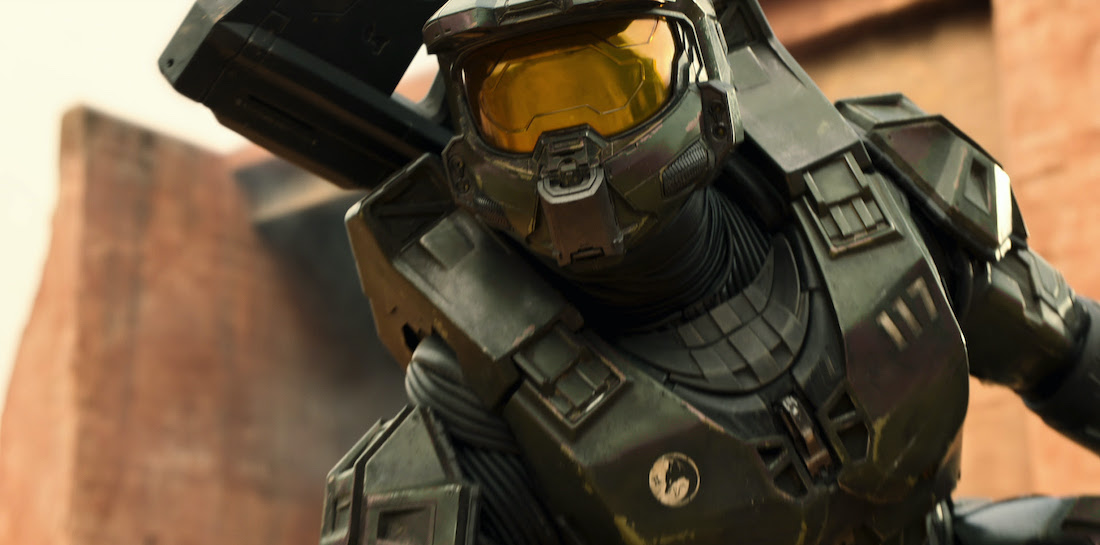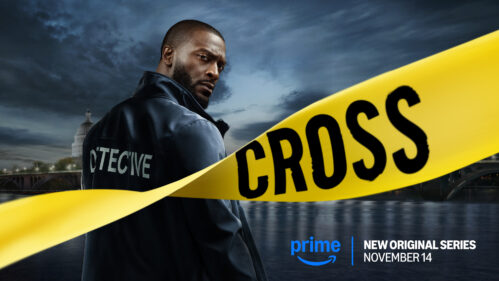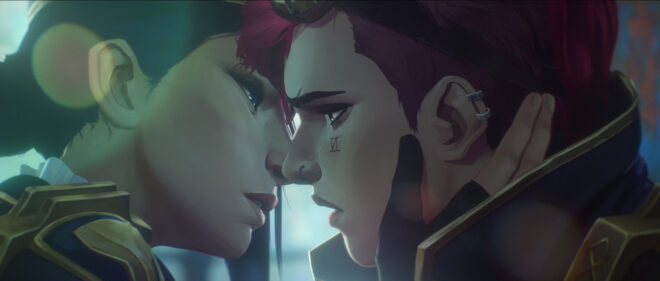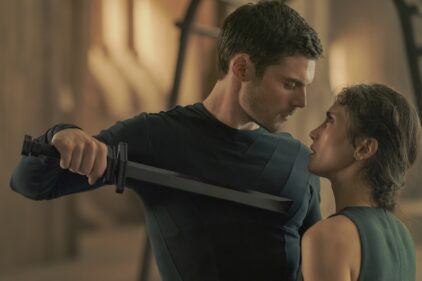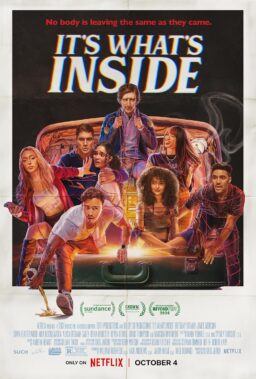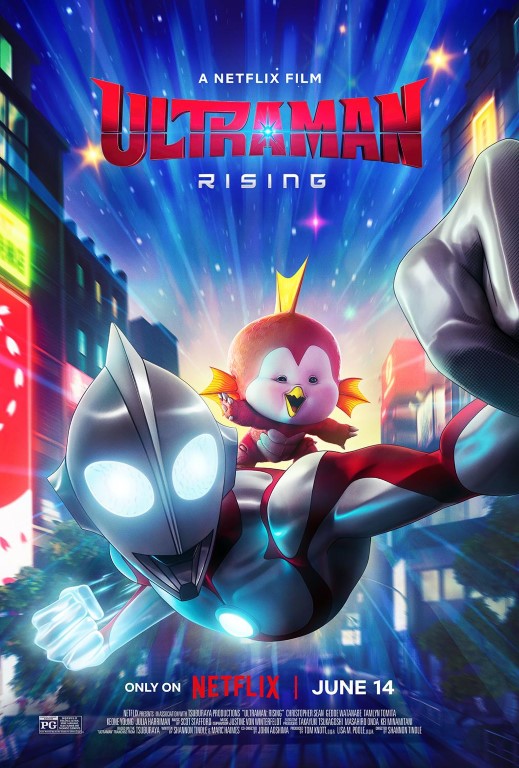After multiple attempts and two decades' worth of expectations, Paramount+ is set to launch the highly anticipated new series, "Halo." Loosely based on one of the most popular video game franchises of all time (with sales exceeding $5 billion), "Halo" throws players into a 26th-century war that has pitted humans against a group of extraterrestrials known as the Covenant.
Beginning with its first release in 2001, "Halo" grew into a console-defying video game for Microsoft's Xbox, and it was expanded upon with multiple novels and side stories—material that has added depth to the franchise. It's these novels that showrunners Steven Kane and Kyle Killen have drawn inspiration from when bringing "Halo" into the live-action realm. Unfortunately, the multiple attempts to bring "Halo" out of the gaming world (including attempts dating back to 2005 with Alex Garland as a scriptwriter, and another with director Neill Blomkamp) have led to this iteration being a retread of recent science-fiction stories like "The Mandalorian." Honestly, the narrative of "Halo" has never been its strong point as it consists of science-fiction first-person shooter fodder used solely as motivation for video game players to feel unstoppable, but this new TV series hasn't done it any favors. Furthermore, while trying to humanize Master Chief, the charisma and mystique surrounding him have been lost, leaving a stoic husk in its wake.

In this version, "Halo" wastes no time in introducing the human race as separated into factions, the Unified Earth Government (UEG) and the Rebels. The United Nations Space Command (UNSC), the military branch of the UEG, has developed the Spartan program of super-soldiers billed as one of humanity's greatest chances at survival against the Covenant. It is here that we are introduced to the emotional center of the series, Kwan Ah (newcomer Yerin Ha). Residing on the Outer Colony planet, Madrigal, Kwan is the teenage daughter of a rebel leader who seeks independence from the UEG.
Unfortunately, Madrigal becomes the site of a conflict between the Covenant and a group of Spartans. As the sole rebel survivor, Kwan is in desperate need of medical support and left with nowhere else to go. Luckily for her, Master Chief, the strongest and most recognizable Spartan, has been sent to Madrigal to recover a mysterious artifact. This artifact holds tremendous power that the Covenant and UNSC believe may change the outcome of the war.
What makes "Halo" an engaging video game is the ability to step into the boots of Master Chief and give waves of space aliens a shellacking. Most of the action is done in a first-person perspective and allows the player to become Master Chief—in fact, never revealing Master Chief's true identity to this day. The television series, on the other hand, wastes no time removing Master Chief's helmet. Underneath is actor Pablo Schreiber, probably best known for his time on Netflix's "Orange is the New Black." His performance in "Halo" isn't exactly a ringing endorsement of his ability, as Master Chief is literally a blank slate behind his helmet. Schreiber has the chance to expand his performance of Master Chief into something interesting, but in the two episodes provided to critics, there isn't much that inspires confidence. Master Chief doesn't need to be some sad man in a suit—anyone could be behind that armor. It's better to keep him hidden so that the audience can imprint themselves on the iconic character.
If seeing Master Chief in action is the biggest draw of "Halo," then this series has gone in a wildly different direction. Thanks to borrowed storylines from the companion novels, there's significant political drama weaved into the story. "Halo" seemingly has been created in a laboratory to reach the largest audience, even though it won't satisfy anyone. Presumably, the showrunners were looking to impress hardcore fans of the franchise by including familiar planets, sounds, and characters, but also needed to bring in those looking for traditional science-fiction fare like "Star Trek." That's why a large portion of "Halo" is about the politics surrounding the war and the treatment of the Spartan warriors. For instance, Dr. Halsey (Natascha McElhone), a recurring Halo universe character, is depicted as an evil scientist whose sole mission is to unlock the true potential of the Spartans. This creates the ethical dilemma of stripping the soldiers of everything, thereby putting her mission in conflict with the bureaucrats who want results, but as humanly as possible.

In addition to the expanded role of Dr. Halsey, "Halo" incorporates military figures and past Spartan candidates. Episode two introduces fellow Spartan cadet Soren-006 (Bokeem Woodbine), once part of the elite force with Master Chief. Additionally, one of the most famous characters in the Halo franchise, the Cortana A.I. (Jen Taylor), has yet to figure into the series but its implementation may be different than fans were expecting.
"Halo" is one of Microsoft's most valuable franchises, so arguably a massive budget shouldn't be out of the question. The opening sequence should be a preview of the large-scale conflicts audiences can expect—it's filled with signature weapons like the Energy Sword, the first-person HUD in Master Chief's visor, and various sound effects. It's here that "Halo"'s video game origins translate directly to live-action with sound effects ripped right from the source and free-firing ballistics that overwhelm the senses. It's a shame then that no gravitas is given to the action unfolding. Sure, it's violent, with Covenant soldiers getting their heads blown off and humans getting impaled, but the combat never evolves past CGI characters battling with CGI characters. Worse, the CGI sometimes looks like poor concept art rather than a high-budget science-fiction affair. It's obvious that the production cut corners rather than letting the series flourish.
Another sticking point is how the iconic soundtrack of "Halo" the game is absent from this adaptation. The original composers Marty O'Donnell and Michael Salvatori have sued Microsoft for unpaid royalties and nothing from the game translates over. TV series composer Sean Callery does bring in motifs that are synonymous with the video game like the Gregorian chants, but it feels a few degrees separated from the original, making it an uninspiring replica.
"Halo" has another seven episodes in season one and has already been renewed for a second season leaving plenty of opportunities for the franchise to evolve. Unfortunately, based on just these two episodes, it may be a bumpy ride, as this adaptation already has significant problems—coming across as nothing more than a generic assemblage of science-fiction stories, disappointing action sequences, and uninteresting characters. "Halo" can best be described as a mixture of science-fiction series "The Mandalorian" and "Foundation," but lacking the heart and intrigue of both. The video game "Halo" excelled at letting players become the hero—with the new "Halo" TV series, audiences are instead saddled with a series devoid of a soul.
Two episodes screened for review. The first episode of "Halo" premieres on March 24th exclusively on Paramount+.
